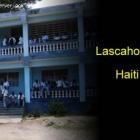ADVERTISEMENT
business - Haiti Observer Blog
business, Haiti Observer Blog. Read the following articles about business
Jamaican company finds real potential in Haiti for Poultry Business
In late December 2010, the Jamaica Broilers unveiled plans to open an operation in Haiti for the production of chicken and chicken by-products to meet the growing need, made more dominant by the earthquake earlier that year, in the Haitian market for protein. Haitian Broilers was born shortly after, a US$2-$3 million dollar project.
In its initial stages, the venture was a partnership with a Haitian entity which saw the country receive feed from Jamaica and chicks from the United States. Described as a mission for gathering information, the company's vice-president, Donald Patterson, has recently said that the now, positively successful venture has surpassed the beginning stages of JA broilers at a corresponding time in its infancy.
World Bank approves Haiti Grant for Business Development and Investment Project
A May 21st press release by the IDA (International Development Association) reveals that Haiti is about to benefit from $90 million in grants. The much needed funding will be used mainly for health services, with $70 million designated towards improving the accessibility of health care to new mothers and children. The remaining $20 million will be used to stimulate the economy by making favorable changes to the business arena aimed at ramping up the interest of private investors.
All in the aim of stimulating Haiti's still-struggling economy and bringing a better standard of living to its citizens, the grant is set to benefit nearly two million people directly from one of its two segments, health services. Via the Integrated Social Services Project, $90 million, an additional subsidized $20 million to be given by the Multi-donor Trust Fund for Health Results Innovation, will improve the health of expectant and new mothers in the West, Northwest and Northeast departments. The gains to be counted from the boost to the economy to improve foreign investment cannot yet be quantified.
Haiti, Venezuela, Honduras, Most dangerous places for foreign multinational executives
There have been many barriers to the government's effort to promote business and investment in Haiti. This new report is the most recent punch in the face of this effort.
Ayiti, Venezyela, Ondiras, kote ki pi danjere pou ekzekitif etranje
Nouvo rapò sa a se yon kout pyen nan efò gouvenman Ayisyen puo Promote Bizsis.
According to Latinbusinesschronicle.com, Haiti found itself with Venezuela, and Honduras as the three most dangerous places in Latin America and the Caribbean for foreign multinational executives for the second consecutive year.
Dapre Latinbusinesschronicle.com, Ayiti ak Venezyela, ak Ondiras, se twa kote nan Amerik Latin ak Karayib ki ranje pi danjere pou ekzekitif etranje pou dezyèm ane.
World Fair-Trade Day Raises Global Consciousness about Poverty
The concept and practice of fair trade has been practiced for many years. A primary example of fair trade is promotion of fair-trade coffee at politically progressive supermarkets. Paying a fair-trade price means a living wage for coffee farmers in emerging nations.
Haiti, one of the most poverty-stricken nations on the globe, is a small island with a population of only 10 million inhabitants. Over half its revenues rely on domestic agricultural output. Further weakening its economy are trade-liberalization policies that harm the export market, and inadequate land infrastructure.
The HOPE Act and Its Effect on the Haitian Economy
The Haitian HOPE (Hemispheric Opportunity through Partnership Encouragement) Act of 2006 (also known as HOPE I) was enforced on 6th Dec 2006. As a part of this Act, exports of certain Haiti-made apparels to U.S. were made tariff-free. The intention was to attract investment in apparel industry with the underlying plan being development and economic growth. The condition was that only those apparels will be made duty free whose raw materials were imported by Haiti from any country provided, a part of the sourced material must come from a country that is a part of U.S. Unilateral Preferential Trade Arrangement. Apart from this, Haiti was also required to establish:
Haoussa or Hausa Mystery in Haitian Culture, Is It True Or Not?
Houssa phenomenon is popular among Haiti businesses. This phenomenon is believed to have occurred when businesses suddenly and mysteriously lose money. There are many instances and stories told about certain Houssa people coming in to a store and buying something. They will pay in cash and get change from the seller. However, once they are gone, the seller would notice that they lost money and that their earnings do not add up. Many businesses experiencing losses blame it on the Houssa phenomenon.
However, is it really the main cause of losses? There are others questioning the truth behind the Houssa phenomenon, citing other possible reasons why businesses might have lost their sales. Mismanagement of the business is one reason. There are businessmen who fail to record all the transactions that happened in the day. Instead of recording it on paper, they try to keep the transactions in their memories, which they can forget at the end of the day.
Haiti has a Vision, to become an emerging market by 2030
Marie Carmelle Jean Marie, Minister of Finance and Economy to Haiti, has seen the future and it involves, as always, reducing the country's need for aid from foreign lands and a modernization of the economy. What's new is that the goal is to change Haiti from a frontier market to an emerging market by 2030; the catch is to keep her ambitious application from becoming 'just a slogan!'
The plan, which involves attracting investments from companies in the US, Venezuela and the Dominican Republic, would boost public finances. Jean Marie expressed the concern that this could not happen unless Haiti proves to investors it can manage its resources well. This demand for transparency and effective management was put into glaring light when Canada stopped its aid at the beginning of the year due to deficiencies in accountability. In the minister's bid to replace aid with investment, the role of PPPs (Public private partnerships) will be essential to revitalize the agricultural sector, which has been devastated by natural disasters time and again.
Haitian Government, the Biggest Obstacles for Economic Growth
A country's economic growth is dependent on two factors namely, 'Entrepreneurship' and 'Government'. While the two are not really exclusive mutually, the two can lead to sustainable economic growth. Either the government must undertake the economic development or it must provide assistance to the private sector entrepreneurs to carry out certain developmental works in an environment that is targeted towards the welfare of the economy as a whole. When this happens, any economy shows rapid and sustained growth. For Haiti however, the situation was and is different.
The biggest obstacle for Haitian economic growth is the political system of the country. For years, the country was under military rule and dictatorship. However, after the end of dictatorship when the country selected the party led by Jean-Bertrand Aristide through its first free election, the people of Haiti felt a sense of relief that wasn't long lasting. The government turned out to be more like a dictator with government officials getting involved in trafficking of drug. The leaders of the government called themselves as the 'Anti-Liberals'.
Western Union to enable Haitians to access government payments
The Haitian government has announced that, through the Western Union, the issuing of badly needed government payments, used to meet the needs of the poor through programs for schools and universities, the handicapped and over 200,000 people, will finally be more readily accessible to those in the dreaded 'last mile'.
At first, the service will make funds available to the needy through their more than 600 locations across the country. They also will give technical assistance to assist with payment delivery and plan to offer other options for distributing funds through bank accounts, prepaid cards and mobiles.
Creation of industrial free zones, Tabarre, Varreux in Cite Soleil
Minister of Industry and Commerce, Wilson Laleau, met with President of the National Council of Free Zones (CNZF), Rode Préval on Monday to join forces with the Société Immobilière de Développement SA (SIDSA). The agreement is for the initiation of a new industrial free zone in Tabarre. Préval states that this will directly create as many as 3,500 new jobs and up to 15,000 indirect ones.
The projected Tabarre free zone will take up an estimated 3 carreaux of land and will house two buildings of over 10,000 square meters each. These modernly constructed industrial buildings were made with promoting Haiti in mind. The facilities are described as 'attractive and should entice overseas investors. They are slated to have circulation areas that allow ease in transport of the 56 40ft containers they are slated to boast.
Our objective is to share with you news and information about Haiti and the people of Haiti. Traditions, habits and the way we were or grew are alive in this site. We highly recommend that you Subscribe to our Newsletter and also share with us some of the things that are memorable and made us unique people.

 Maissade, Haiti
Maissade, Haiti  Lascahobas, Haiti
Lascahobas, Haiti  Saint Marc, Haiti
Saint Marc, Haiti  Newsletter
Newsletter  Life After Death
Life After Death